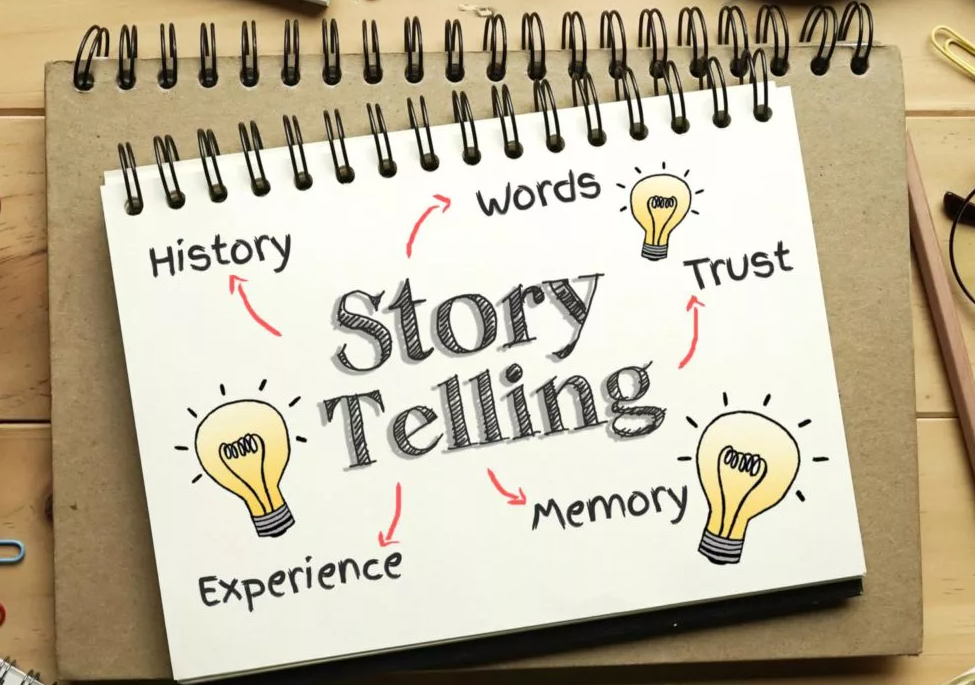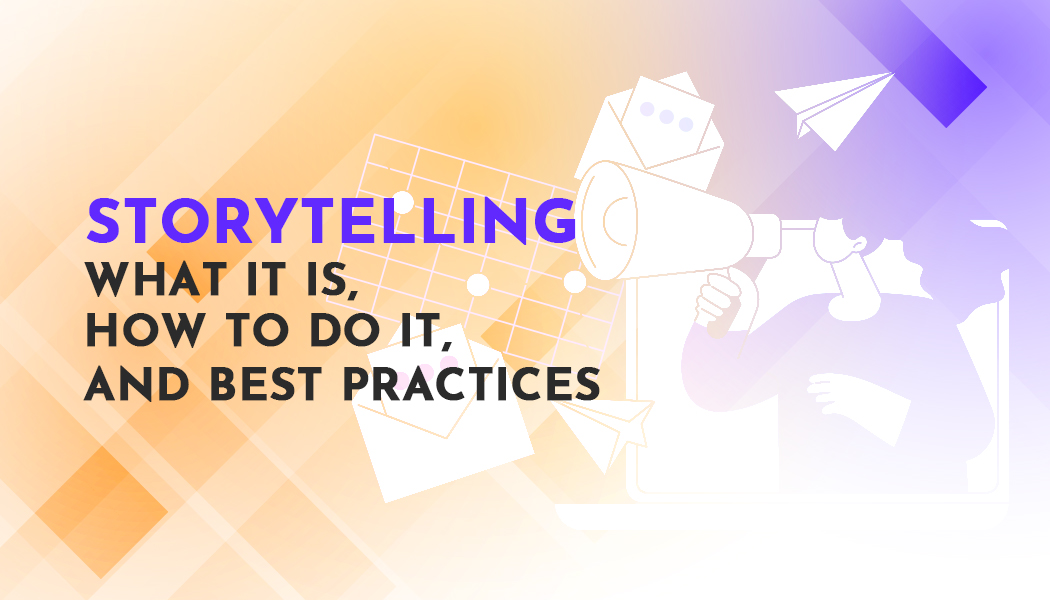Storytelling: What It Is, How to Do It, and Best Practices
Have you ever noticed that the best advertisements are not advertisements, but are real stories capable of involving and moving us?
Storytelling is exactly this: the ability of companies to communicate through stories relevant to their customers and to build a relationship with them.
But how do you undertake a corporate storytelling journey?
To start approaching this narrative marketing technique, asking yourself the right question is essential.
You shouldn't ask yourself how to convince a person to buy your product, but rather why of all the brands that person should choose yours.
What Is Storytelling
Storytelling is the answer to the need to connect uniquely with your customers or potential customers. It is the ability to communicate through stories, and we can say without fear of being wrong that storytelling is the most powerful way to make our brand or product known.
It's not just a question of marketing: telling stories is the oldest form of communication. Stories have always linked facts, figures, and details to emotions, creating a connection between the right and left hemispheres of our brain. It is thanks to them that we create bonds and empathy with those around us.
The power of storytelling lies right here: in its ability to involve those who listen to you, reaching them on a more intimate and empathetic level.

Why Storytelling Is Important for Businesses
Being able to effectively balance facts and stories by creating an engaging and impactful narrative is now more necessary than ever for brands.
It is precisely storytelling that helps to create narrative universes in which the values of the brand and those of consumers meet: you can no longer buy attention, you can only try to build trust and complicity that lasts over time.
If it is true that storytelling is a powerful tool that adapts to the mindset of every company, it is also true that narrative ability is not an innate skill at all.
It is rather a skill that you can learn and perfect.
Not Just The Facts
Numbers, facts, and data provide information, but it is the stories that capture our attention and push us to reflect and empathize.
This is because stories give you context, create empathy, and allow you to see the world through the eyes of others.
However, to create effective storytelling you must remember that storytelling is not just about telling stories, but rather being able to correctly balance facts and stories.
And that's exactly what you need to learn to do. Capture attention so that your story becomes an unstoppable force that can bring people closer to your brand and inspire them.
8 Practical Tips to Start Storytelling for Your Brand

Now, let's see the practical steps to craft an engaging story.
1. Decide Your Goal
Ask yourself straight away what your goal is.
- Do you want to move people?
- Do you want to make people laugh?
- Or, maybe, inspire change or raise awareness of an issue?
Once you've established what you want to do, don't lose sight of it throughout the next steps. Coherence is one of the founding pillars of storytelling that works.
2. If You Want to Be Heard, Don't Shout
To get attention it is not enough to shout, to be remembered and connected you must instead learn to listen before deciding how to send your message.
Study your audience, and monitor their behaviors.
- What do these people like?
- What makes them emotional, what do they laugh about and what do they cry about?
Start from here to build your brand storytelling strategy.
Balance facts and stories by creating narratable and memorable content, and then insert your story into an experiential context by creating a shared (and shareable) imagination.
3. Conflict is Not a Bad Thing in Storytelling
As a storyteller, you cannot avoid conflict.
Great writers create stories that have all sorts of obstacles and difficulties strewn across the path of their protagonists.
To be satisfied with a happy ending, the audience must watch the main characters struggle to achieve their goals. It's okay to be cruel to the main characters, it's necessary.
Compelling plots are built on conflict, and it is imperative to embrace drama and confrontation to become a better storyteller.
4. Have a Clear Story Structure
There are many different ways to structure a story, but the three ingredients that bring a tale to life are:
- Start
- Central part
- End
Specifically, a success story will begin with an inciting incident that will lead to escalating action, after which it will reach a climax and ultimately settle into a satisfying resolution.
There are many books and online resources that can help you better understand these terms, but the best way to understand how to write a story is to read lots of stories.
The world is full of great storytellers in literature and cinema from whom we can draw to learn how they shape the structure of each story. Similarly, you can tell a story with presentations, where a well-crafted narrative can captivate an audience and effectively convey your message.
5. Take inspiration From Personal Experiences
Whatever story you are telling, you can always take inspiration from your own life or look at the experiences and stories of those close to you to find what and how to tell.
Think about important events in your life and how you might be able to turn them into narratives.
Sometimes something that happened to you can become an exciting incipit of a compelling story.
6. Involve the Audience for Effective Storytelling
Great storytelling requires the teller to connect with the listener.
Be careful though, much of how you attract listeners depends on the storytelling mode you choose.
If you're reading a story in front of an audience, you might try looking away from the page now and then to make eye contact with it.
If you are recording a narrative podcast, a lot depends on the expressiveness of the voice and the ability to convey emotions with your tone.
Whatever you choose to tell your story, you need to establish a relationship with the people listening.
7. Observe Good Storytellers
Our personal stories will always be unique and specific to us, but there is no better way to learn how to create a great story than by watching how the storytellers we love so much tell their stories.
Most of us know people we consider to be eloquent and engaging storytellers. Whether it's a family member who entertains everyone at the dinner table with childhood tales or a friend who excels at public speaking, chances are we've met more than a handful of talented storytellers in our lives.
Let's find good storytellers, listen to them, and learn through observation. How do they create a success story?
8. Narrow the Scope of Your Story
If you are telling a real story about yourself, it can be difficult to choose important main points to include.
Many people tend to report every detail and end up inundating the audience with facts that dilute the central narrative arc.
Define a clear beginning and end for your story, then write key plot events as bullet points between them.
Trust that your audience will be able to follow the story without overwhelming them with unnecessary backstory or deviant plot points.




